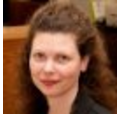As Paul Grenier writes in his insightful article, "Distorting Putin's Favorite Philosophers":
Up until these articles in March-April of 2014, I do not recall reading a single negative assessment of either of these Russian thinkers [Solovyev or Nicolai Berdyaev], at least not among Western specialists, nor a single one accusing them of being hostile to the West, nor a single one suggesting that they are friendly to Russian chauvinism or nationalism.
Grenier goes on to describe Solovyev's ideas and how they contradict the characterization presented by Brooks, et al.:
How can Solovyev be described as a "nationalist" when his magnum opus, The Justification of the Good (the book which Putin is said to have urged his governors to read), states precisely the opposite? It is hard to imagine a more absolute condemnation of national exceptionalism than that contained in Solovyev's definitive work of ethics:
"It must be one of the other. Either we must renounce Christianity and monotheism in general, according to which 'there is none good but one, that is, God,' and recognize our nation as such to be the highest good that is, put it in the place of God - or we must admit that a people becomes good not in virtue of the simple fact of its particular nationality, but only in so far as it conforms to and participates in the absolute good."
This same anti-nationalist theme runs through Solovyev's entire corpus. He argued bitterly against the Slavophile nationalists of his day.
The spiritual aspects of pre-Soviet Russian Slavophile philosophers and the revival of the Orthodox Church may appeal to a general human spiritual need, particularly in the aftermath of the chaos, trauma and social dislocation of the 1990's, as well as the need for social cohesion.
Putin appears to grasp this on some level as is evidenced by his Address to the Federal Assembly in 2012 in which he lamented a shortage of empathy and solidarity in Russian society:
Colleagues, today, in our cities and villages, we are seeing the results of what has been happening in our nation, in society, in schools, in the media, and in our heads for the past fifteen to twenty years. And this is understandable. That was the time when we discarded all ideological slogans of the previous era. But unfortunately, many moral guides have been lost too. We ended up throwing out the baby with the bath water. Today, this is often manifested in people's indifference to public affairs, willingness to tolerate corruption, brazen greed, manifestations of extremism and offensive behaviour. And all of this occasionally takes an ugly, aggressive, provocative form; I'll go even further and say that it creates long-term threats to the society, security and even integrity of Russia.
It is painful for me to say this, but I must say it. Today, Russian society suffers from apparent deficit of spiritual values such as charity, empathy, compassion, support and mutual assistance. A deficit of things that have always, throughout our entire history, made us stronger and more powerful; these are the things we have always been proud of.
Putin appears to be in touch with the average Russian view of this as recent surveys of Russian opinion indicate that Russians believe in separation of church and state but believe that the church should have influence over social and cultural life. Also, revealed is that most Russians identify as Orthodox Christian, but do not necessarily attend services, reflecting a desire for a spiritual and cultural anchor but not necessarily a shrill or fundamentalist form of religiosity.
Part II will cover the part of the book pertaining to Nicolai Berdyaev.
(Note: You can view every article as one long page if you sign up as an Advocate Member, or higher).





